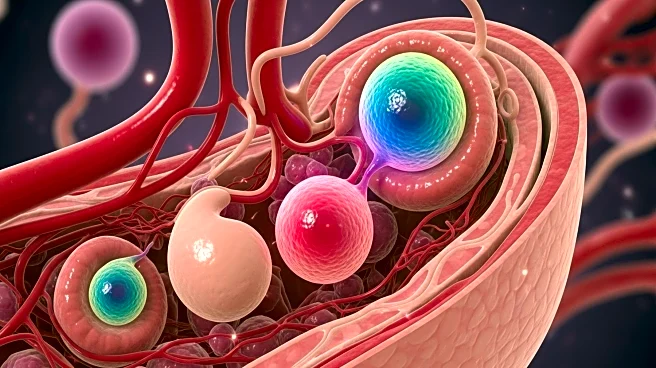What is the story about?
What's Happening?
A recent study published in Nature Aging explores the impact of aging on Leydig cells, which are crucial for testosterone production in the testes. Researchers found that as mice age, the stiffness of testicular tissue increases, leading to impaired Leydig cell function. This stiffness promotes calcium influx and mitochondrial dysfunction, resulting in reduced cell proliferation and hormone production. The study highlights the role of biomechanical properties in maintaining gonadal function and suggests potential interventions to mitigate age-related declines in testicular health.
Why It's Important?
Understanding the mechanisms behind Leydig cell dysfunction in aging is vital for developing strategies to address age-related hormonal imbalances and reproductive health issues. The findings could inform future research on therapeutic approaches to enhance Leydig cell function and testosterone production in older individuals. This research also contributes to the broader field of aging biology, offering insights into how tissue mechanics influence cellular processes. By identifying key factors that affect Leydig cell health, scientists can work towards improving quality of life and health outcomes for aging populations.
Beyond the Headlines
The study's implications extend beyond reproductive health, as it sheds light on the complex interactions between tissue mechanics and cellular function. The research underscores the importance of considering biomechanical factors in aging studies, which could lead to novel interventions for various age-related conditions. Additionally, the study highlights the potential for cross-disciplinary collaboration between fields such as biomechanics, endocrinology, and gerontology to advance our understanding of aging and develop comprehensive health solutions.















